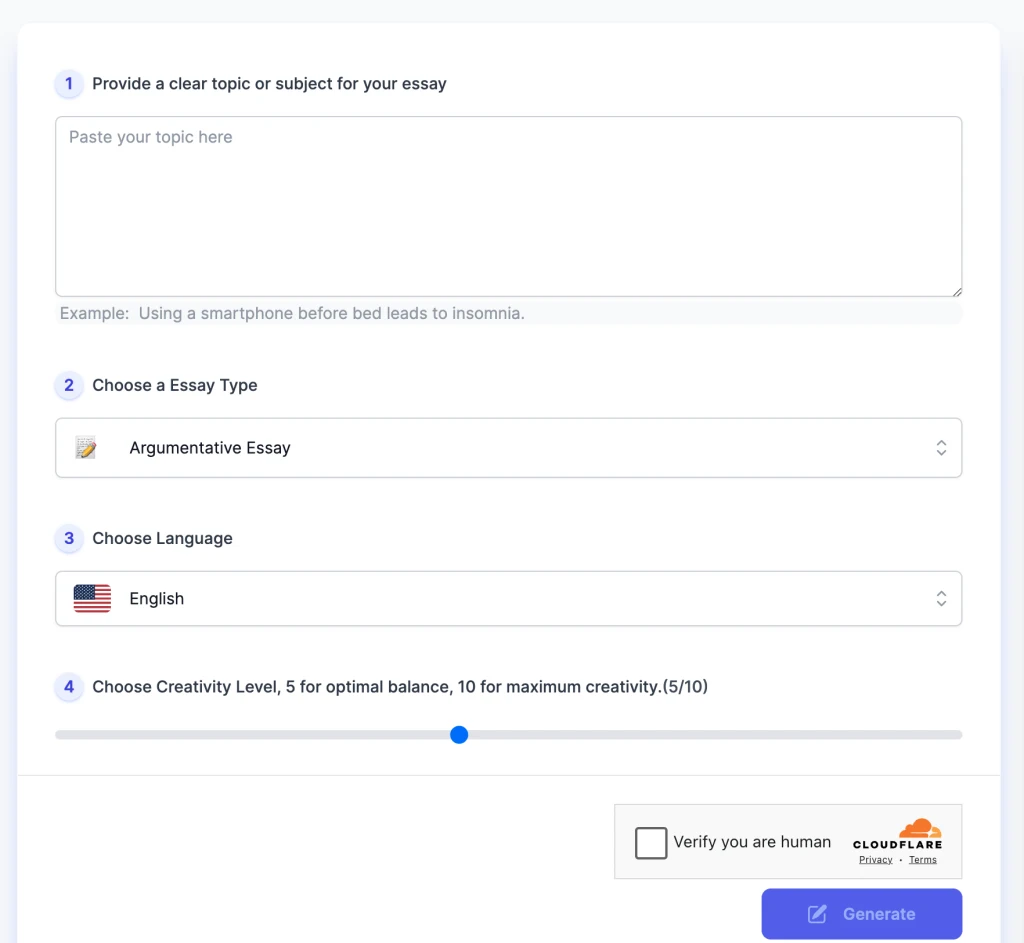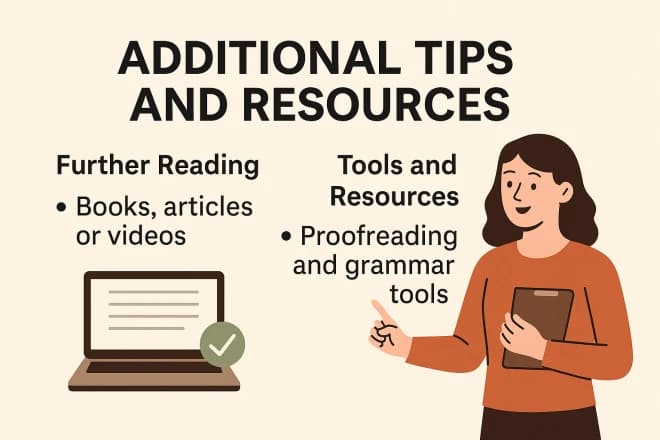Unlock Insights: Find the Answers You Seek on Our Blog
Improving Your Persuasive Writing Skills with Argumentative Essay Examples
By Evelyn Sterling
Now more than ever, the power of persuasion is invaluable. It doesn’t matter if you’re presenting a research paper, pitching a business idea, or just trying to convince your friends to join you for a movie night; persuasive writing is key to swaying opinions and making decisions go your way. This skill isn’t just for the classroom—it’s essential in professional settings and personal conversations alike, proving its significance in every aspect of our lives. In this discussion, we’ll dive into the nuts and bolts of persuasive writing. We’ll see how dissecting argumentative essays can hone your persuasive skills and offer practical tips to enhance your writing projects.
Understanding the Essentials of Persuasive Writing
To navigate the world of persuasive writing successfully, one must first grasp its foundational elements. Persuasive writing aims to convince the reader of a particular viewpoint or to take a specific action, using reasoned argument, emotional appeal, or a combination of both. This form of writing hinges on three key rhetorical components: ethos, pathos, and logos. Understanding and effectively employing these elements can significantly enhance the persuasiveness of your writing.
Ethos refers to the credibility or ethical appeal of the writer. Establishing trust with your audience is crucial; readers are more inclined to be persuaded by someone who appears knowledgeable, fair, and morally sound. Ethos is built through the tone of the writing, the author’s qualifications, and the way arguments are presented.
Pathos, on the other hand, targets the emotions of the reader. It involves creating an emotional response to an argument, thereby making the audience more receptive to the writer’s message. Utilizing storytelling, vivid examples, and emotive language can effectively draw readers in and make them more sympathetic to your point of view.
Logos is the logical appeal of your argument. This involves using facts, statistics, logical reasoning, and clear examples to support your claim. A well-reasoned argument, grounded in evidence, can be highly persuasive as it appeals to the reader’s sense of logic and reason.
Beyond these rhetorical strategies, the cornerstone of any persuasive essay is a strong thesis statement. This concise declaration of the writer’s position provides a clear and focused direction for the essay. A compelling thesis statement not only states the argument but also outlines the key points that will be used to support this argument throughout the essay. It serves as a roadmap for the reader, indicating what to expect and guiding them through the argument. The strength and clarity of your thesis statement are pivotal in shaping an effective argument; it sets the stage for a persuasive discourse that is coherent, logical, and convincing.
Incorporating ethos, pathos, and logos into your writing, anchored by a robust thesis statement, lays the foundation for persuasive writing that resonates with readers and effectively conveys your message. As we delve further into the use of argumentative essay examples, we’ll explore how these fundamental components are applied and exemplified, providing practical insights for enhancing your persuasive writing skills.
The Role of Argumentative Essay Examples in Learning
Argumentative essay examples offers a unique and invaluable learning opportunity for those seeking to refine their persuasive writing skills. By reading and meticulously analyzing these examples, individuals can gain profound insights into the art of persuasion, understanding not just the ‘what’ but the ‘how’ and ‘why’ behind effective argumentative strategies.
Insights into Effective Persuasion Techniques
Analyzing argumentative essay examples allows writers to dissect successful persuasion techniques in action. This process reveals how seasoned writers employ ethos, pathos, and logos to construct compelling arguments that resonate with their audience. For instance, identifying how an author establishes credibility (ethos) can teach you the importance of presenting well-researched evidence and showcasing expertise on the topic. Similarly, observing the use of emotional appeals (pathos) demonstrates the power of connecting with readers on a personal level, whether through evocative language, relatable examples, or impactful narratives. Finally, examining logical reasoning (logos) in these essays highlights the necessity of structuring arguments in a coherent, logical manner that guides the reader to a convincing conclusion.
Benefits of Studying Various Argument Structures and Styles
Argumentative essays are not one-size-fits-all; they come in various structures and styles, each suited to different topics and objectives. Engaging with a diverse range of examples exposes writers to this variety, fostering a flexible approach to argumentation. For example, some essays may adopt a more formal structure, with clear, point-by-point arguments supported by substantial evidence. Others might take a narrative approach, weaving facts and arguments into a compelling story. Studying these different styles can broaden a writer’s repertoire, enabling them to choose the most effective structure for their purpose and audience.
Furthermore, analyzing various argumentative essays can illuminate how to effectively organize ideas, transition between points, and conclude arguments in a way that leaves a lasting impact on the reader. It also provides a window into addressing and refuting counterarguments—a crucial skill for bolstering the persuasiveness of your stance.
Through exposure to a wide range of argumentative essay examples, writers not only learn to appreciate the subtleties of persuasion but also how to adapt these strategies to their writing style and objectives. This analytical practice cultivates a deeper understanding of what makes an argument compelling, equipping writers with the tools to craft more persuasive and impactful essays themselves. As we move forward, we will delve into how to apply the insights gained from these examples to improve your own persuasive writing, making it more effective and convincing.

Analyzing Examples to Enhance Argumentation Skills
Mastering the art of persuasive writing requires more than just an understanding of rhetorical principles; it demands the ability to critically analyze argumentative essays to unearth the strategies that make them effective. This critical analysis not only improves one’s argumentation skills but also offers a blueprint for crafting persuasive essays that resonate with diverse audiences.
How to Critically Read Argumentative Essays
- Identify the Thesis and Main Arguments: Start by pinpointing the thesis statement and the primary arguments that support it. Understanding the core of the essay’s argument sets the stage for a deeper analysis of how these arguments are developed and supported.
- Break Down the Use of Ethos, Pathos, and Logos: For each main argument, evaluate how the author employs ethos, pathos, and logos. Note instances where the author establishes credibility, appeals to the emotions of the reader, or uses logic and evidence to bolster their argument. This exercise helps in understanding the multifaceted approach to persuasion.
- Examine the Structure and Organization: Analyze how the essay is structured and how this structure contributes to the effectiveness of the argument. Pay attention to the introduction, how each argument is sequenced, the use of transitions, and the conclusion. A well-organized essay guides the reader through the argument in a logical and compelling manner.
- Assess the Handling of Counterarguments: Notice how the author addresses potential counterarguments. An effective argumentative essay will acknowledge opposing views and provide counterpoints to refute them, thereby strengthening the original argument.
- Reflect on the Impact of the Conclusion: Finally, consider how the conclusion synthesizes the arguments presented and reinforces the thesis. A powerful conclusion leaves a lasting impression and solidifies the persuasive impact of the essay.
Understanding the Audience and Appealing to Diverse Readers
A crucial aspect of persuasive writing is tailoring your argument to appeal to your specific audience. Argumentative essay examples showcase various ways to engage different types of readers, making them an invaluable resource for understanding audience adaptation. By analyzing a range of essays, you can observe how authors modify their tone, language, and argumentative strategies to connect with their intended audience. For example, an essay intended for a scholarly audience may prioritize logos and ethos, using formal language and extensive evidence, while one aimed at a general audience might rely more heavily on pathos, using relatable examples and accessible language.
Furthermore, examples can demonstrate how to anticipate and address the concerns or biases of the audience, an essential skill for making your argument more persuasive. Seeing how different writers adapt their approaches provides a template for effectively reaching your audience, whether they are experts in a field, policymakers, or the general public.
Through the critical analysis of argumentative essays and an understanding of audience adaptation, writers can significantly enhance their argumentation skills. This process not only improves their ability to craft persuasive arguments but also equips them with the versatility to appeal to a wide range of readers. As we move to the next section, we will explore specific techniques gleaned from these examples that you can apply to your writing to make it more compelling and persuasive.
Techniques for Improving Your Persuasive Writing
Enhancing your persuasive writing skills involves more than just understanding the theoretical aspects of rhetoric; it requires practical application of specific techniques that can make your arguments more convincing. By studying argumentative essay examples, you can learn to apply these techniques in your writing, effectively boosting your persuasive power. Here are some key strategies to focus on:
Use of Evidence
- Incorporate a Variety of Evidence Types: Use statistics, quotes from experts, historical examples, and personal anecdotes to support your arguments. Diverse evidence types cater to different audience preferences and strengthen your persuasive appeal.
- Ensure Relevance and Credibility: Select evidence that directly supports your argument and comes from reputable sources. This enhances the ethos of your writing, making your argument more trustworthy.
Logical Flow
- Create a Clear Argument Structure: Organize your essay in a logical sequence that builds your argument step by step. Begin with an engaging introduction, present your arguments in a coherent order, and conclude with a strong summary that reinforces your thesis.
- Use Transitional Phrases: Employ transitional phrases to guide your reader from one point to the next smoothly. This not only improves the readability of your essay but also strengthens the logical flow of your argument.
Handling Counterarguments
- Acknowledge Opposing Views: Demonstrating awareness of counterarguments shows critical thinking and enhances your ethos. It tells your readers that you have considered multiple perspectives.
- Refute Counterarguments Thoughtfully: After acknowledging opposing views, provide well-reasoned refutations. This could involve presenting additional evidence, highlighting logical flaws in the counterargument, or showing why your argument still stands despite the opposition.
Maintaining Originality While Learning from Examples
- Adapt Techniques, Not Content: Draw inspiration from the persuasive strategies used in examples, but apply them to your unique topics and arguments. This helps you maintain originality in your writing.
- Develop Your Voice: While adopting effective argumentative techniques, strive to infuse your personality and perspective into your writing. Your unique voice can make your essay stand out and resonate more deeply with readers.
- Practice and Feedback: Regularly practice writing argumentative essays on various topics, and seek feedback from peers, instructors, or mentors. Compare your work with examples to gauge your progress and identify areas for improvement.
By meticulously analyzing argumentative essay examples and applying these specific writing techniques, you can significantly enhance the persuasiveness of your writing. The goal is not to mimic the examples verbatim but to learn from their strengths and apply these lessons in a way that reflects your understanding and creativity. Through continuous practice and reflection, you can develop a persuasive writing style that is both effective and uniquely yours.
Finding and Utilizing High-Quality Argumentative Essay Examples
To enhance your persuasive writing skills through the analysis of argumentative essay examples, it’s crucial to source high-quality, credible examples. These examples serve as a foundation for learning and inspiration, but their value is directly tied to their quality and relevance. Here are some strategies for finding and effectively utilizing these resources:
Where to Find Credible Argumentative Essay Examples
- Academic Journals: Academic journals are treasure troves of well-researched and meticulously argued essays on a wide range of subjects. Use online databases and libraries to access journals related to your field of interest.
- Educational Websites: Websites of reputable educational institutions often provide examples of argumentative essays. These can serve as excellent models of how to structure and develop arguments effectively.
- Online Academic Resources: Platforms like Google Scholar, JSTOR, and Project Muse can guide you to academic papers and essays across disciplines. These platforms ensure that the materials you’re using are credible and of high academic standards.
- Writing Centers and Libraries: Many universities and colleges have writing centers that offer resources for students, including examples of argumentative essays. Libraries may also have compilations of essays that can be used for study.
Practices for Effective Analysis
- Active Reading: Engage with the text actively by highlighting key arguments, noting down persuasive strategies, and marking sections where ethos, pathos, and logos are effectively utilized.
- Note-Taking Strategies: Develop a systematic approach to note-taking that allows you to capture important insights and your reactions to the essay’s arguments. Use margin notes, summaries, or a dedicated notebook to organize your thoughts and observations.
- Comparative Reading: Compare and contrast different argumentative essays to understand varying approaches to persuasion. Note the differences in structure, style, and the balance of ethos, pathos, and logos across essays on similar topics.
- Reflect on Strengths and Weaknesses: For each essay you analyze, identify what you believe are its strengths and weaknesses. Reflect on how these elements affect the essay’s overall persuasiveness.
- Apply Insights to Your Writing: Take the insights gained from your analysis and apply them to your writing practice. Experiment with different techniques and strategies you’ve observed to see how they influence your writing’s effectiveness.
- Seek Out Feedback: Share your essays with peers, mentors, or through online forums. Ask for specific feedback on the use of persuasive techniques and how closely your writing aligns with the high-quality examples you’ve studied.
By meticulously selecting high-quality argumentative essay examples and employing a strategic approach to their analysis, you can significantly enhance your understanding and application of persuasive writing techniques. This process of continuous learning and application will not only improve your writing skills but also broaden your perspective on effective argumentation.
Use AI Essay Generator to Get Argumentative Essay Examples
In the quest to improve your persuasive writing skills, leveraging modern technology can offer a significant advantage. Among these technological tools, AI essay generators have emerged as innovative resources for obtaining argumentative essay examples.
What is The AI Essay Generator?
The AI essay generator is a powerful online tool powered by artificial intelligence technology, designed to produce written content on a wide array of topics. By leveraging natural language processing (NLP) and machine learning algorithms, the generator can compose essays that mimic human writing styles, offering insights, arguments, and perspectives on the specified subject matter.
The core functionality of an AI essay generator lies in its ability to understand a given prompt or question and subsequently generate a coherent, structured response. This process involves analyzing vast amounts of text data to understand how arguments are constructed and presented in various contexts. The result is a generated essay that can serve as a preliminary draft, a source of inspiration, or a learning tool for understanding different writing techniques and argumentation strategies.
AI essay generator is not just simple text creator; It is designed to reflect critical thinking, incorporate relevant facts and evidence, and present arguments in a logical and persuasive manner. Whether you’re a student seeking to enhance your writing skills, a professional aiming to articulate your ideas more effectively, or simply someone interested in exploring different viewpoints on a topic, AI essay generators can provide valuable assistance.
How to Use AI Essay Generator: Step-by-Step Guide
- Step 1. Choose Your Topic:
In the text box labeled “Provide a clear topic or subject for your essay,” type in the specific subject you want the essay to be about.
Example: If you’re interested in technology and health, you could enter a topic such as “The impact of social media on mental well-being.”
- Step 2. Select the Essay Type:
Directly below the topic box, you’ll find a dropdown menu for “Choose a Essay Type.” Click on this dropdown.
Select “Argumentative Essay” to ensure the generator knows what style of essay you need. This type focuses on presenting a standpoint and supporting it with evidence and reasoning.
- Step 3. Choose the Language of Your Essay:
Next, you will see an option for “Choose Language.”
If your preferred language is English, ensure the English option is highlighted with the flag of the United States next to it.
- Step 4. Set the Creativity Level:
You’ll find a slider for “Choose Creativity Level,” with a scale from 1 to 10.
Drag the slider to your desired level of creativity. A setting of 5 is recommended for a balance of conventional and creative content, while a setting of 10 will result in the most creative output.
- Step 5. Verify You’re Human:
Before proceeding, you need to complete a CAPTCHA verification to confirm that you are not a robot. This is a security measure.
Simply click on the checkbox that says “Verify you are human”.
- Step 6. Generate Your Essay:
Once all the above steps are completed, click the “Generate” button, typically located at the bottom of the interface.
The AI will process your inputs and generate an essay based on the topic, type, language, and creativity level you’ve set.
- Step 7. Review Your Essay:
After the essay is generated, take the time to review it carefully.
Ensure it meets your expectations and fulfills the requirements of your assignment or purpose.
Note: Remember, the generated essay should serve as a starting point or a source of inspiration. It’s recommended to personalize and refine the content to suit your voice and objectives.
Practical Application: Writing Your Own Argumentative Essay
The true test of your persuasive writing skills comes when you apply the strategies and techniques you’ve learned to writing your own argumentative essay. Here’s how to put
theory into practice:
Start With a Topic You’re Passionate About
- Choose a topic that ignites your interest and about which you have a strong opinion. This passion will fuel your argument and make your writing more compelling.
Create an Outline
- Before you dive into writing, plan your essay. Create an outline to organize your main points, supporting arguments, and evidence. This will help you maintain a clear and logical structure throughout your essay.
Write the First Draft
- Using your outline as a guide, begin writing your essay. Don’t worry about perfection at this stage. Focus on getting your ideas down on paper.
- Be sure to introduce your topic, state your thesis clearly, and develop each point with evidence and reasoning.
Seek Feedback
- Once your first draft is complete, seek feedback from peers, instructors, or even through online forums. Constructive criticism is invaluable for improvement.
- Pay attention to the feedback on the clarity of your arguments, the strength of your evidence, and the persuasiveness of your conclusion.
Revise and Refine
- With feedback in hand, revise your essay. Look for areas where you can strengthen your arguments or clarify your points.
- Don’t be afraid to make substantial changes if necessary. Iterative writing is about evolving your essay into its most effective form.
Polish Your Final Draft
- After revising, edit your essay for grammar, punctuation, and style. A well-polished essay communicates professionalism and respect for your audience.
- Read your essay out loud to catch any remaining issues and to ensure it flows naturally.
Reflect on the Process
- Reflect on what you’ve learned from the examples you studied and the feedback you received. Consider how you applied this to your essay.
- Each essay you write is an opportunity to refine your persuasive writing skills further. Reflect on your growth and set goals for your next piece.
By practicing the craft of argumentative essay writing and engaging in an iterative process of drafting, receiving feedback, and revising, you will continue to improve and become more persuasive in your writing.
AI Tools Categories
Browse all AI tools by category
All AI Tools
229Amazon
5AI Writing Generator
85Article & Content Writing
35Branding & Identity
54Content Generation
170Creative Ideas
32Educational Resources
34E-commerce
14Etsy
6Events & Celebrations
13Facebook
6Gaming & Fun
5Instagram
3Lifestyle & Personal
8LinkedIn
6Marketing & SEO
40Poem & Lyrics Writing
19Professional Documents
31Social Media
44Story & Book Writing
49Text Effects
14TikTok
7Twitter
3Writing Enhancement
36YouTube
11
Highly rated and most popular AI tools curated by our experts
Recently added AI tools that are gaining traction
- AI Post Generator

- AI Bullet Point Generator

- AI Discussion Post Generator

- AI 2 Weeks Notice Letter Generator

- AI Content Creation Ideas Generator

- AI Radio Ad Script Generator

- AI Podcast Script Generator

- AI Resume Objective Generator

- AI Resume Headline Generator

- AI Password Generator

- AI Snapchat Caption Generator

- AI Snapchat Username Generator

- AI Pinterest Board Name Generator

- AI LinkedIn Experience Description Generator

- AI Twitter Hashtag Generator

- AI YouTube Short Idea Generator

we prioritize displaying the latest content closely related to the current blog post.








